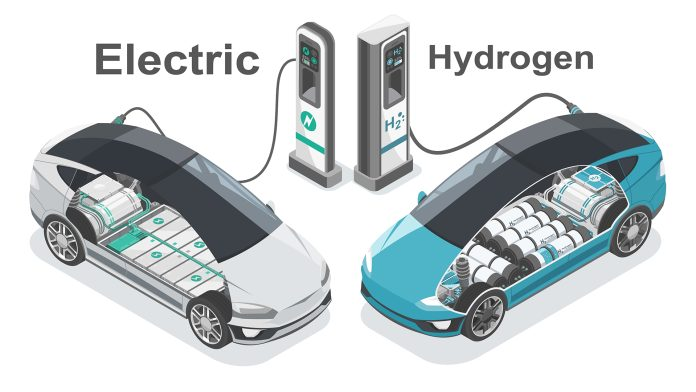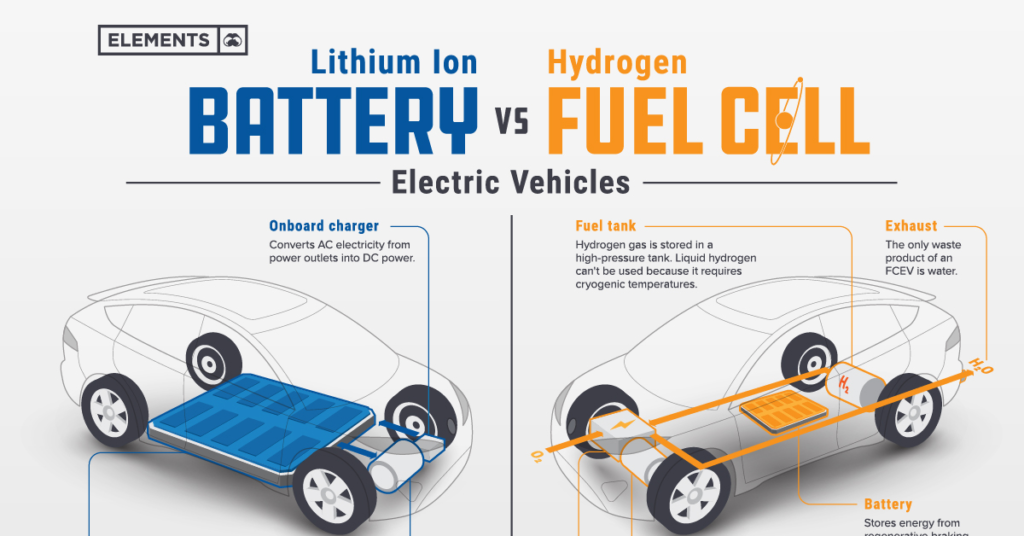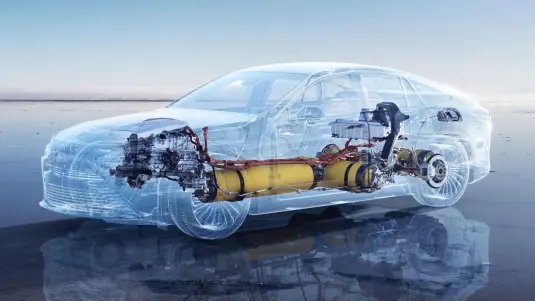The automotive world is undergoing a significant transformation, driven by the quest for cleaner and more efficient transportation. Amidst this evolution, Fuel Cell Electric Vehicles (FCEVs) are emerging as an exciting alternative to both traditional electric vehicles (EVs) and combustion engines. With their unique advantages rooted in innovative fuel cell technology, these hydrogen-powered vehicles offer promises that go beyond just zero emissions.

Imagine a car that refuels in mere minutes while delivering longer ranges than many battery-electric models. Picture driving without the anxiety of running out of juice on long trips. FCEVs make all of this possible with their remarkable efficiency and environmental benefits. As we explore the advantages of Fuel Cell EVs over conventional options, you’ll discover why they might be the key to sustainable transportation’s bright future. So buckle up as we dive into what makes FCEVs stand out in today’s dynamic automotive landscape!
Comparison of FCEVs with Traditional EVs and Combustion Engines
Fuel Cell Electric Vehicles (FCEVs) represent a distinct approach to automotive technology compared to Traditional EVs and Combustion Engines. While both FCEVs and Traditional EVs rely on electric propulsion, FCEVs utilize hydrogen fuel cells, offering quicker refueling times that rival gasoline vehicles.
In contrast, Traditional EVs require longer charging periods. This can be a significant drawback for drivers needing convenience during long journeys.

When comparing performance, FCEVs often provide greater range than their battery-electric counterparts. They can travel hundreds of miles on a single tank of hydrogen, making them attractive for those who prioritize distance without frequent stops.
Combustion engines still dominate in terms of initial purchase price and familiar infrastructure. However, as Fuel Cell Technology advances and more hydrogen stations emerge, the competitive landscape could shift dramatically in favor of cleaner alternatives like FCEVs. Each vehicle type has its merits but understanding these differences is crucial for consumers navigating the future of sustainable driving options.
Environmental Impact of FCEVs
Fuel Cell Electric Vehicles (FCEVs) stand out for their minimal environmental footprint. Unlike traditional combustion engines, which emit harmful pollutants, FCEVs produce only water vapor as a byproduct. This means cleaner air and healthier communities.
The hydrogen used in fuel cells can be generated from various renewable sources such as wind or solar power. This versatility significantly reduces reliance on fossil fuels, addressing climate change concerns head-on.
Moreover, the life cycle of FCEVs tends to have a lower carbon impact compared to traditional EVs and combustion vehicles. From production through operation to disposal, they present an opportunity for sustainable automotive technology.
Transitioning to hydrogen vehicles not only supports ecological balance but also promotes energy independence. As more regions invest in this green alternative, the potential benefits extend beyond just personal transportation; they contribute to broader environmental goals.
Cost Savings and Efficiency of FCEVs
Fuel Cell Electric Vehicles (FCEVs) offer notable cost savings that can appeal to budget-conscious drivers and businesses alike. Unlike traditional electric vehicles, which rely on battery recharging, FCEVs fill up quickly with hydrogen—often in under five minutes. This convenience translates to less downtime and more time on the road.
When considering efficiency, FCEVs excel due to their high energy conversion rates. They convert hydrogen into electricity much more effectively than combustion engines convert gasoline into motion. This means greater mileage per unit of fuel.

Moreover, maintenance costs for FCEVs tend to be lower since they have fewer moving parts compared to internal combustion engines. With limited wear on components like brakes and transmissions, there’s potential for long-term savings.
As infrastructure develops further, the economic advantages of owning a Fuel Cell vehicle become even clearer for those looking toward sustainable transportation solutions.
Availability and Infrastructure for FCEVs
The availability of fuel cell electric vehicles (FCEVs) is steadily increasing as interest in hydrogen technology grows. Major automakers are investing heavily in this innovative automotive technology, introducing new models that cater to a range of consumers.
However, the infrastructure for refueling FCEVs still faces challenges. Hydrogen stations are limited compared to traditional EV charging points and combustion engine fueling options. This scarcity can impact consumer adoption.
Efforts are underway to expand the network of hydrogen refueling stations. Governments and private companies recognize the potential benefits of fuel cell cars and are working on developing more locations across urban areas and highways.
As awareness rises about the environmental impact of transportation choices, investments in FCEV infrastructure will likely increase. The future could see a robust network supporting these eco-friendly vehicles, making them more accessible for everyday drivers.
Advancements in FCEV Technology
The landscape of Fuel Cell Electric Vehicles (FCEVs) is rapidly evolving. Innovative developments in fuel cell technology are enhancing efficiency and performance.
Manufacturers are exploring new materials that improve hydrogen storage capabilities, making vehicles lighter and boosting their range. This advancement directly tackles one of the common concerns related to FCEV limitations.
Additionally, breakthroughs in electrolysis techniques allow for more efficient hydrogen production from renewable sources. As a result, the carbon footprint associated with this process shrinks significantly.

Automakers are also refining fuel cell stacks, ensuring quicker start-up times and smoother operation across various weather conditions. These enhancements make driving an FCEV more user-friendly.
Moreover, integration with smart grid systems promises better energy management and distribution for hydrogen refueling stations—an essential factor for widespread adoption of these Hydrogen Vehicles. The future looks bright as technological strides continue to propel the benefits of fuel cell cars forward.
Conclusion
The evolution of automotive technology is rapidly shaping our future. Fuel Cell Electric Vehicles (FCEVs) present a compelling alternative to both traditional EVs and combustion engines. Their unique advantages, driven by fuel cell technology, position them as key players in the transition towards sustainable transport.
With their minimal environmental impact, FCEVs contribute significantly to cleaner air and reduced greenhouse gas emissions. This aspect is crucial as we tackle climate change and strive for a greener planet. The efficiency of hydrogen vehicles also means they can offer cost savings over time, despite initial investments.
As infrastructure for fueling these vehicles improves, accessibility will enhance consumer acceptance. Advancements in FCEV technology continue to emerge, making them more attractive with each passing year.
Consumers should keep an eye on this dynamic segment of the market. Embracing the benefits of fuel cell cars could lead us toward not just a cleaner environment but also a more efficient automotive future. With ongoing innovations and growing support systems in place, Fuel Cell EVs may very well redefine how we think about energy consumption and transportation in years to come.
For more such content, keep visiting QAWire


